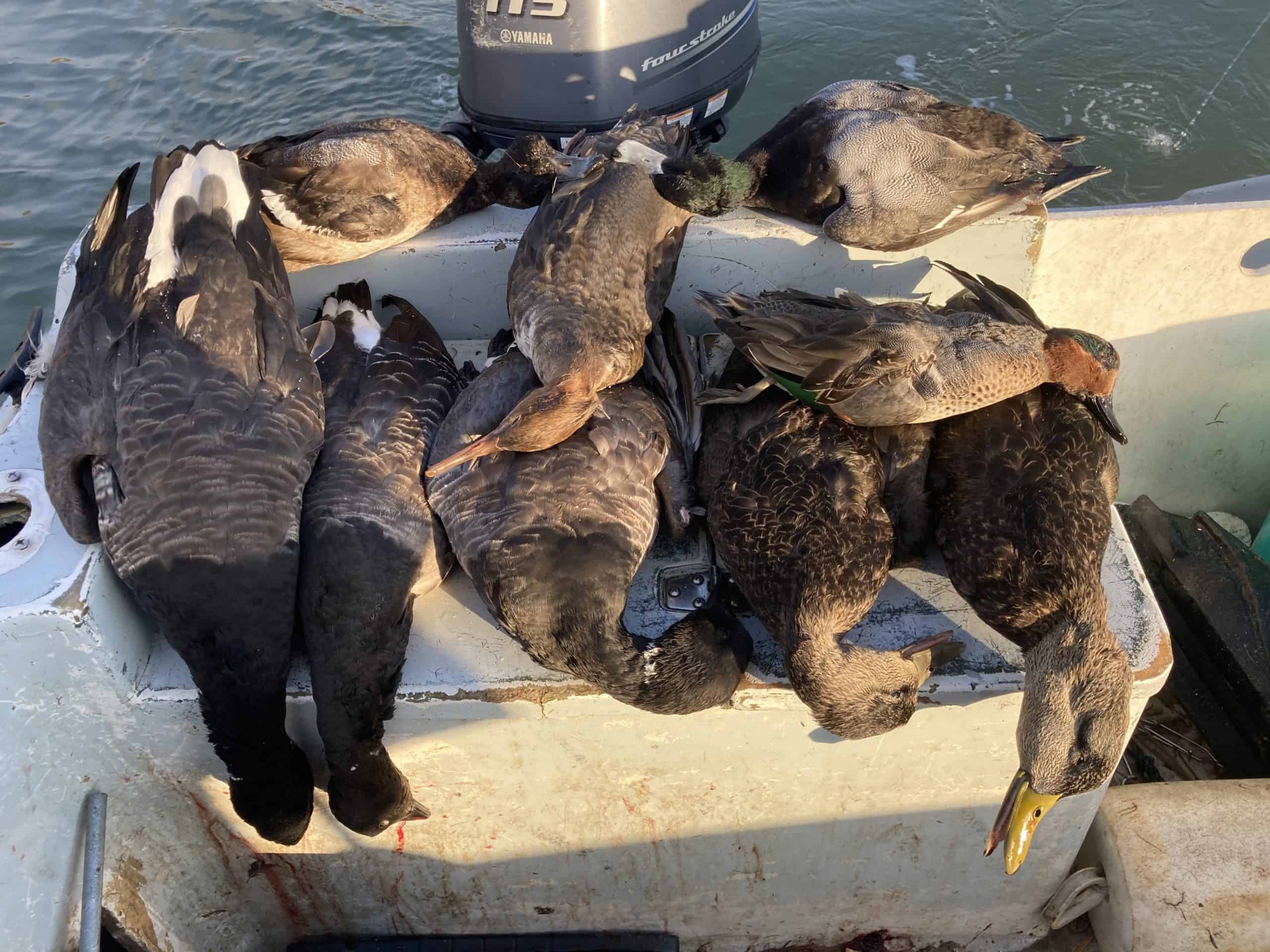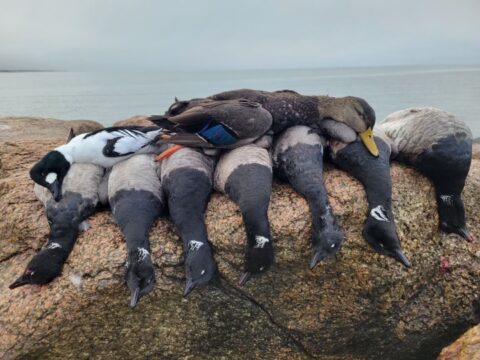I love Black Ducks and they have been my lifelong favorite duck; they are leery, super quick to flair and so beautiful in flight. Black Ducks were in abundance on the marshes of my childhood and excellent table fare weighing up to 3.5 pounds; that's why they are the king. I killed my first black duck in 1977, at the ripe old age of 10 and still remember that hunt like it was yesterday. Still to this day I could walk to the exact spot where I picked that Black Duck up and it hangs on the wall of my office today. Since that day I have spent many an hour in pursuit of Black Ducks by either jumping ditches or sculling them in my younger years, to hunting them out of blinds over decoys on fresh and saltwater.
Black Ducks nest in the northeastern part of North America. They range as far west as the central flyway at times, but love the coastal salt marshes of New England and the Mid Atlantic States in fall and winter. Feeding on plant life primarily in the spring and breeding months, their diet turns to about 80% animal feed in the winter: invertebrates, molluscs, snails and small fish.
The male looks very similar to the female from a distance. Up close one can make out the drakes dull yellow bill and the hens dull olive green bill. The old timers would talk about the late season larger Black Ducks as Canadian red legs and yes, I have seen many red legs - Black Ducks with bright orange or almost red legs and feet. They look much different than the more abundant smaller black ducks with dull brownish orange feet. My entire life I swore there were two kinds of Black Ducks, but after doing research the scientists say no, they are one in the same. Sorry! I am not convinced.
Black Ducks are so beautiful with an iridescent purple wing speculum. A true, fully pure Black Duck has no trailing white line on the end of the speculum. That white tipped speculum is the sign of some mallard genetics mixed in the bird. The scientists also say that the hybrid Black Duck hens don't live long enough to reproduce. The drake mallard does not care and apparently will try to breed any hen duck and have been seen trying to breed domestic hen chickens when there are no more hen ducks around to chase because all of the hen ducks are on their nests.
Most of my life we were allowed to harvest only one Black Duck a day, but in recent years that limit has gone to two Black Ducks per day. I am so glad to see them in abundance these days and can only hope they will continue to flourish. Yes I love Black Ducks.



